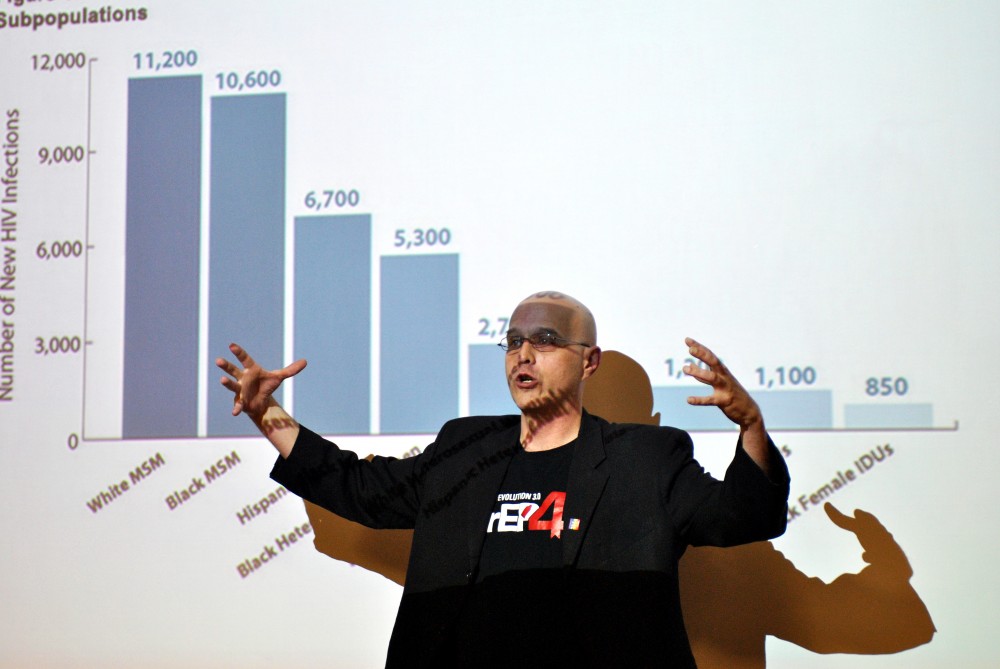Speaker informs students on ethical issues of HIV

GVL / Brianna Olson Todd Heywood
Apr 9, 2015
On Tuesday, Grand Valley State University welcomed journalist and HIV activist Todd Heywood to campus to give a speech addressing the ethical issues surrounding HIV.
Heywood presented a lecture to more than 20 students explaining the laws surrounding HIV, the ramifications of the illness and how society needs to be educated with regard to this disease. As an individual living with HIV, Heywood has done extensive campaigning on topics surrounding political and social structures that regulate people living with HIV.
Heywood began his lecture by asking value questions. He explained that these are questions that helped him to gauge where his audience was coming from.
“It is really important to understand what the audience knows and to know where they stand,” he said.
After listening to his audience, Heywood took up the discussion of HIV as an illness. He explained what it means to be HIV positive, how difficult it is to get HIV and how students could use preventative measures.
He then showed the students a video of a man confessing to killing his female lover after finding out that she was HIV positive. Heywood explained that showing this video helped to reiterate his point that sometimes disclosure of HIV status is not beneficial to an individual.
As long as an individual is not intentionally attempting to infect others, it should not be a crime to withhold information regarding HIV status, Heywood said.
“There is no crime because nobody is going to be hurt,” he said. “It is impolite to lie in society, but that lie only takes on criminal constructs in very specific situations, such as testifying.”
The most important thing he hoped the students took away from the lecture was the truth.
“I think it’s really important for people to understand HIV and HIV exposure because we’ve created an illusion that’s misleading people and that’s leading people to get infected,” Heywood said.
One rarely known factor that Heywood discussed was the existence of a drug called Truvada. This is a pill that, if taken once a day by a HIV negative individual, will prevent HIV infection. Currently, the pill is considered to be at least 92 percent effective; however, with recent changes by the FDA, the pill could become 99 percent effective.
Another point that Heywood made was on Ottawa County’s recent ‘Wear One’ campaign promoted by the Women’s Center and other on-campus organizations. Heywood explained how the witty comments, intended for amusement, on the condoms could be misconstrued to cause offense.
Marilyn Preston, assistant professor in the Liberal Studies department, explained that her decision to bring Heywood to campus was caused by an understanding of the current lack of HIV education.
“I bring Todd every semester to speak to my diversity and LBGT identity classes,” she said. “There is an amazing amount of ignorance on our campuses and on our policies. This ignorance affects our population. I know this not only because of the data, but from what students say.”
Preston said her biggest hope is for students to become passionate about the new information they learn and the misinformation that is exposed.
“We hope the information spreads, that the students get angry and start doing something,” she said. “I hope they start talking to people, becoming activists. I hope they learn that it is okay to be angry, to be loud and to demand change.”
Heywood also urged the students present to call for change.
“Talk to your professors, talk to your administrators, talk to your legislators,” he said. “You have a right to be angry at the fact that you’ve been misled.”

























